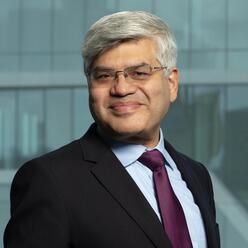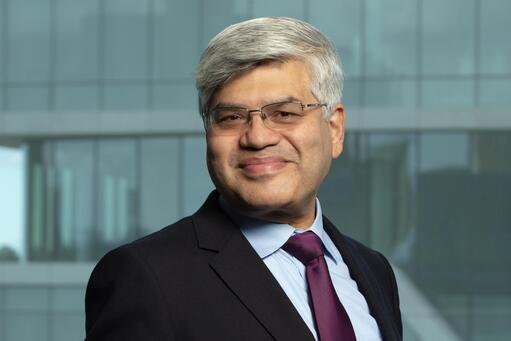In the video above, CBS Professor Shivaram Rajgopal shares his insights on the core principles, challenges, and successes associated with environmental, social, and governance (ESG) issues.
Watch the video above and read the transcript below.
CBS: What is ESG?
Shivaram Rajgopal: That's a question that's been puzzling experts for a long time. So just to unpack the acronym, it's Environmental Concerns, Social Concerns, and Governance Concerns about how a firm is run. You can think of ESG as a risk management process where people look at risks beyond the usual conventional financial ones. They try to broaden the lens and consider climate issues, workforce concerns, whether you are a responsible taxpayer in the economy, the nature of your board's compensation, and more.
CBS: Is ESG working?
Rajgopal: I think the ideas behind ESG are deep and fundamental. The practice of ESG is a mess; it is not working. The opportunity here is to make the practice of ESG better. What are these responses looking like? It's a combination of some regulatory action and some voluntary action on behalf of companies. NGOs [non-governmental organizations] in this space have been fairly vocal, so better regulation in terms of labels in asset management is one response. If you say you're an ESG fund, you have to do more now to convince people that you're genuinely an ESG fund. Europe has become a bit more prescriptive, so they have something called the EU Green Taxonomy where they define what is green and what is good ESG. Europe's regulatory model is fairly different from the US regulatory model, a bit more top-down; we are a bit more bottoms up.
CBS: Why should business schools teach ESG?
Rajgopal: When I teach my climate risk collective, it's like teaching a new class every year because the field is exploding. The expertise needed to connect all these diverse pieces—people who can talk to climate scientists, bankers, investors, maybe tax policy experts, because a lot of this is through subsidies, people who can talk to governments. You almost need some kind of connector for all these diverse hubs, and hopefully, that's where we in business can be useful to this debate. When I talk to people in climate and other places, what do we bring as a B-School to the conversation? I would say it's awareness of trade-offs. Nothing's free. In conversations with people in sustainability who are not in business, they suggest taxing a company. I tell them the company is a legal fiction. There's no such thing as a company. When you tax a company, the money has to come out of customers, suppliers, employees, shareholders, or creditors. They're all trade-offs. Understanding trade-offs and how value gets created and distributed is perhaps the most significant contribution we can make as a B-School to this debate. That's what I try to communicate repeatedly using cases and other ideas in my classes.
CBS: What's the future of ESG?
Rajgopal: The ESG train, in my mind, has left the station. By that, I mean the next generation deeply cares about the issues we are discussing—the role of business in society. Companies have to do more than purely focus on short-term profits. Even if you don't like hearing all this, businesses are very good at responding to where the customer's going. So all this will be reflected in future consumption patterns, regardless of how you feel. In 15 to 20 years, I think this will become a mainstream conversation.

